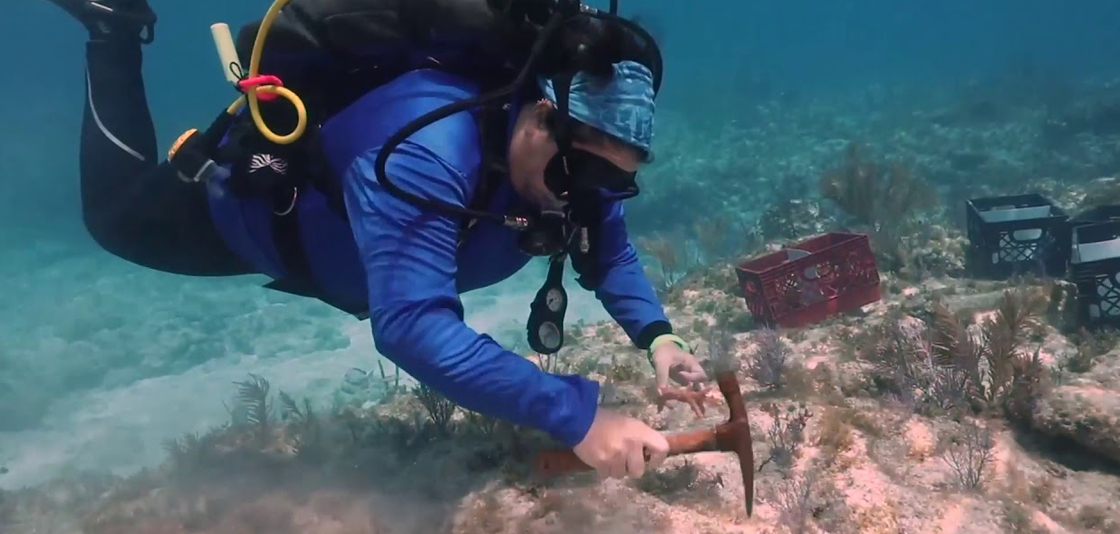This year’s Earth Day theme is “Restore our Earth,” and a good place to start is rehabilitating coral reefs in important marine environments, such as the Eastern Dry Rocks Sanctuary Preservation Area off Key West, Florida.
NOAA and a number of conservation agencies are beginning a three-year project to outplant 60,000 fragments of nursery-raised coral at the Dry Rocks site. It’s the first large scale outplant to restore seven varieties of coral reefs in the Florida Keys National Marine Sanctuary.
“Outplanting at this unprecedented scale is one of many immediate actions needed to address the rapid decline in our treasured coral reefs,” said Ben Friedman, acting NOAA Administrator, in a press release yesterday. “The Florida Keys has become a world leader in coral restoration with new techniques for addressing threats and accelerating coral growth, thanks to an unprecedented collaboration between NOAA, our partners.”
The outplant work is funded by a $5 million grant from NOAA and the National Fish and Wildlife Foundation. Reef corals grow in nurseries for 6 to 8 months prior to planting on reef sites. Already more than 1,000 staghorn and elkhorn corals have been planted, and the target of 7,350 coral plantings by the end of the year appears within reach.
Scientists believe this reef restoration plan will help Florida’s fragile saltwater ecosystems recover, and demonstrate how coral restoration is a viable method of improving the marine environment across the board. In later stages of the project, students and faculty of College of the Florida Keys will also help reintroduce thousands of herbivores, like the Caribbean King Crab, to the site to serve as natural grazers that help sustain a healthy ecosystem. In addition to restoring much-needed biodiversity to the site, a healthy reef track bolsters the local economy. The reef track in the Keys attracts millions of visitors each year, who account for more than $2 billion in economic impact.
